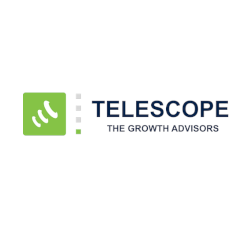European Private Equity in times of COVID-19 – Telescope’s two cents on priorities and opportunities

In the light of the coronavirus and initial projections of economic impact for Private Equity (PE) funds, the discussion about setting the right priorities is breaking out in fund management board rooms.
For many experienced investors, taking the right actions “fast” is key, while bad memories of the last crises resurface. Broken deals, insolvent portfolio companies, book-value hits and immediate postponements of CAPEX heavy yet necessary investments in innovation and digitalization. Daily News back in the day. 2008 all over again.
However, what’s different compared to the last crises?
This corona outbreak is taking place during a rally of new fund raisings and coincides with the period of the highest ever dry-powder reserves at both global and European PE fund level. Hence, we strongly believe that this time PE companies have not just the means, a great opportunity but also a given social and economic obligation to use these reserves to keep businesses afloat and also to continue investing in the overall economic lifecycle.
Those funds who can play offense in times of this bear market will likely make the best bets and emerge much stronger from this extraordinary crisis.
So, what are fund management priorities?
PE firm priorities and strategic actions – the Corona ’playbook’
1 – Taking care of employees, operational readiness and liquidity
After having mitigated potential health risks on the workforce from any workplace-related infection (home office and remote working policies) as well as after having secured operational readiness for vital business processes, fund management priority must be the creation of additional liquidity for portfolio firms wherever necessary. May this be to sustain revenue losses, support workers and their families or to invest in the extension of production capacities in businesses whose products are vital for fighting the virus.
2 – Review of portfolio companies’ business models and footprint
Every crisis creates a chance for fund managers to see their portfolio companies in a different light and review the business model. For some of us, earlier hypothetical discussions about threats to the business model from SWOT analyses in the due diligence seem much more “real” today.
In these review sessions, portfolio managers need to ask themselves:
- What made our business so vulnerable to the crisis in the first place?
- Which aspect of our business model is most crucial and what can we do to mitigate similar risks in the future?
- Which risks could be reduced by changing our delivery and revenue model? Which innovation and digitalization opportunities are existent, to make our operations and sales e.g. less dependent on individual purchases and/or customer visits?
- Do we have a full picture of the tech-companies in the market who might provide the right tools and technologies to overcome the weaknesses in our business model? What can we learn from them? Can we acquire them, partner with them?
- Geographies: Are our operations, customers or suppliers in today’s risky areas? What can we do to diversify our geographic footprint?
3 – The new playbook for acquisitions and strategic initiatives
Certainly, we all agree that the COVID-crisis has changed the way we look at charts depicting hypothetical risks of cyclicity and external effects on our economy. We also all agree that the long-term implications of corona one specially Europe is yet unclear. The books yet to be written.
However, we know two things:
- A – Eventually, the PE market has seen a long-desired correction of inflated buyout prices, both in private markets as well as public arenas. Transactions during the q2/3 of 2020 will likely to be much better priced and more reasonably calculated than in recent years. A time for bold investors.
- B – Because many strategic investors have instantly cut investments and potential CAPEX for acquisitions during March 2020, the competition of financial investors against strategic buyers will now be greatly reduced for the good of the remaining year 2020 before CFOs will open M&A budgets again.
So, we can argue, that in markets where funds have existing knowledge, footprint and expertise, the opportunities for add-on acquisitions and strategic initiatives are better than before we knew about COVID-19. In crises, you likely make the best bets, and we believe that mid-term fund performance will be to a great degree dependent on today’s bold moves during uncertain times.
by Simon Fischer, Managing Partner
_____________________________________________________
About Telescope Advisory Partners
Telescope is a Munich-based data-driven advisory boutique for transaction, due diligence and innovation strategy focused on small- to mid-cap deals. We advise private equity as well corporate M&A clients in their acquisition process with a strong focus on data acquisition to substantially support target identification, acquisitions and growth potential assessments.
Contact
Simon Fischer, Managing Partner – Mail: simon.fischer (at) telescope-advisory.com – Phone: +49 1728994627

